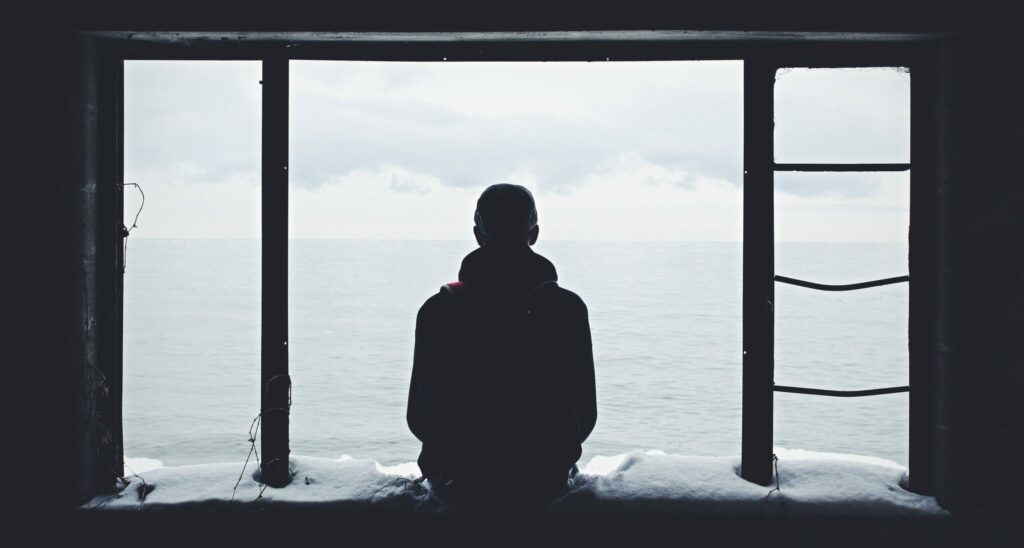A mood disorder is an umbrella term used by mental healthcare professionals to describe various forms of depression, including bipolar disorders.
Mood disorders can manifest in individuals across different age groups, affecting children, teenagers, and adults alike. Notably, children and teens may exhibit unique symptoms of mood disorders, making their diagnosis a complex task. It can be challenging to accurately identify and assess mood disorders in children, as their ability to express their emotions may be limited.
Thankfully, there is hope for those grappling with mood disorders, as most mood problems respond positively to a combination of treatment approaches. By incorporating medications, psychotherapy, and embracing proper self-care, individuals can find relief and regain control over their lives.
Through therapeutic interventions like counseling and psychotherapy, along with the appropriate use of antidepressant medications, individuals can effectively manage and treat mood disorders. Additionally, a strong support system and self-care practices play a crucial role in promoting healing and overall well-being for those facing mood disorders.
This guide addresses the following key issues:
- What is a mood disorder?
- Mood disorder definition.
- What qualifies as a mood disorder?
- Mood disorder examples.
- How to connect with treatment for chronic mood disorder.
Common Mood Disorders
Mood disorders is also known as affective disorders, involve a wide range of conditions that impact both mood and overall functioning. This inclusive term encompasses depressive disorders, as well as bipolar disorders, all of which significantly influence emotional state.
Within the realm of mood disorders, individuals may experience a spectrum of moods, ranging from persistent low mood (depression) to elevated or irritable moods (mania), as observed in the case of bipolar disorder. These conditions are characterized by dramatic shifts between these extremes.
The most common mood disorders include:
- Major depressive disorder: Affecting approximately 6% of the U.S. population, major depressive disorder is characterized by prolonged periods of profound sadness and despair.
- Persistent depressive disorder: This new diagnosis includes chronic major depressive disorder, as well as depression lasting for two years or more, formerly referred to as dysthymia.
- Substance-induced depression: Depression symptoms arise during or shortly after substance use, withdrawal, or exposure to certain medications.
- Depression associated with physical illness: This form of depression manifests in response to the physical symptoms associated with an underlying medical condition.
- Bipolar disorder: Formerly known as manic depression, bipolar disorder involves alternating periods of mania (elevated mood) and depression. Surprisingly common, bipolar affects nearly 1% of the U.S. population.
- Cyclothymia: Characterized by emotional ups and downs, cyclothymia is a milder form of mood disturbance than bipolar disorders.
- SAD (seasonal affective disorder): Seasonal affective disorder is a type of depression that occurs in conjunction with reduced daylight hours, typically observed from fall to spring.
- Disruptive mood dysregulation disorder: This disorder primarily affects children, leading to chronic irritability and temper outbursts that are inconsistent with their age.
- Premenstrual dysphoric disorder: Mood changes associated with a woman’s menstrual cycle, presenting in the week leading up to menstruation.

Causes of Mood Disorders
Multiple factors contribute to the development of mood disorders, with an imbalance of brain chemicals being a significant underlying cause. The intricate interplay of neurotransmitters in the brain, such as serotonin, dopamine, and norepinephrine, can impact mood regulation and stability.
In addition to biological factors, life events play a crucial role in influencing mood. Stressful life changes, such as significant transitions, losses, or traumatic experiences, can contribute to the onset or exacerbation of a depressed mood. These external factors can interact with internal chemical imbalances, further impacting emotional state.
Beyond this, there is a notable familial pattern in mood disorders, indicating a genetic predisposition. Individuals with a family history of mood disorders are more likely to experience these conditions themselves. While the specific genes and mechanisms involved are still being studied, the hereditary component highlights the influence of genetics in mood disorders.
Mood disorders arise from a complex interplay of biological, environmental, and genetic factors. By recognizing and addressing these contributing elements, healthcare professionals can develop comprehensive treatment plans tailored to each individual’s unique needs, promoting effective management and improved well-being.
Mood Disorder Symptoms
The symptoms of a mood disorder can vary depending on age and the specific type of disorder. It is important to note that the intensity of these symptoms is significantly higher than what a person may experience in the course of everyday life. Additionally, if these symptoms persist over time and interfere with relationships, interests, or work, it is a cause for concern. Examples of mood disorders symptoms include:
- Ongoing feelings of sadness, anxiety, or emptiness.
- Sense of hopelessness or helplessness.
- Low self-esteem and feelings of inadequacy or worthlessness.
- Excessive guilt.
- Loss of interest in previously enjoyed activities, including a decline in sexual interest.
- Difficulties in maintaining relationships.
- Sleep disturbances, such as trouble sleeping or sleeping excessively.
- Changes in appetite or weight.
- Decreased energy levels.
- Difficulties with concentration and focus.
- Impaired decision-making abilities.
- Frequent physical complaints (headaches, stomachaches, or fatigue, for instance) that do not improve with treatment.
- Thoughts of running away from home or making threats to do so.
- Heightened sensitivity to failure or rejection.
- Irritability, hostility, or aggressive behavior.
- Recurrent thoughts of death or suicide, making plans for death, or expressing a desire to die.
If you or a loved one is experiencing thoughts of suicide, seek immediate medical assistance. If you are unable to see your primary care provider right away, go to a reputable mental health facility in your community without delay. Do not postpone seeking help.
Note: the symptoms of mood disorders can sometimes resemble other conditions or mental health problems. For this reason, consult with a healthcare provider for a precise diagnosis and appropriate treatment.
Treatment for Mood Disorders
Treatment options for all types of mood disorders often yield positive outcomes, typically involving a combination of antidepressant and mood-stabilizing medications.
Comprehensive treatment for mood disorders often incorporates an integrated approach, combining medication management with various forms of psychotherapy, such as CBT (cognitive-behavioral therapy) or DBT (dialectical behavior therapy).
The following medications are commonly utilized in the treatment of depression and bipolar disorders:
- Antidepressants: SSRIs (selective serotonin reuptake inhibitors) and SNRIs (serotonin-norepinephrine reuptake inhibitors) are commonly prescribed due to their similar mechanisms of action. Both types of antidepressants can be effective in alleviating symptoms of depression. Older types of antidepressants may also be used, but they often come with more significant side effects. Most antidepressants require several weeks before their full effect is realized. It may be necessary to try different types of antidepressants before finding the one that effectively relieves symptoms.
- Antipsychotics: Atypical antipsychotic medications have shown favorable responses in managing manic and mixed episodes associated with bipolar disorder. Additionally, they can help alleviate certain symptoms of depression in some individuals.
- Mood stabilizers: Mood stabilizers play a crucial role in regulating the mood swings commonly experienced by individuals with bipolar disorder.
- Psychotherapy: In conjunction with medication, psychotherapy is a vital component in treating symptoms of depression and bipolar disorder. Various forms of psychotherapy have proven effective, including cognitive-behavioral therapy, dialectical behavior therapy, interpersonal therapy, problem-solving therapy, and family therapy.
For those who do not respond adequately to traditional treatments, alternative therapies such as ECT (electroconvulsive therapy) and TMS (transcranial magnetic stimulation) can deliver promising results.
With an accurate diagnosis and appropriate treatment plan, the majority of mood disorders are highly treatable. Seeking professional help and engaging in the right combination of therapies can lead to improved well-being and a higher quality of life.

Get Treatment for Mood Disorders at Gratitude Lodge
At Gratitude Lodge in Southern California, we understand the complexities of mood disorders and are dedicated to providing comprehensive support for mental well-being. Our pet-friendly treatment centers, nestled in the serene locations of Newport Beach and Long Beach, CA, offer tailored programs for individuals seeking solace and recovery.
Begin your healing journey with our carefully supervised medical detoxification program, ensuring a safe and comfortable transition toward a brighter future. Once your body is purged of harmful substances, you can seamlessly transition into a 30-day inpatient program that is specifically designed to address mood disorders, so you can simultaneously work to improve problems like bipolar and alcohol addiction.
At Gratitude Lodge, our treatment programs incorporate a range of evidence-based interventions aimed at promoting lasting recovery and mental wellness:
- Medication-assisted treatment
- Psychotherapy
- Group therapy
- Individual counseling
- Family therapy
- Holistic therapies
- Aftercare
At Gratitude Lodge, we wholeheartedly believe in your capacity to overcome mood disorders and embrace a fulfilling life of recovery. Take the first step towards a brighter future by calling our admissions team at 800-994-2184. Trust in the compassionate care provided by Gratitude Lodge, and together we can pave the way to a renewed sense of gratitude and well-being.




























